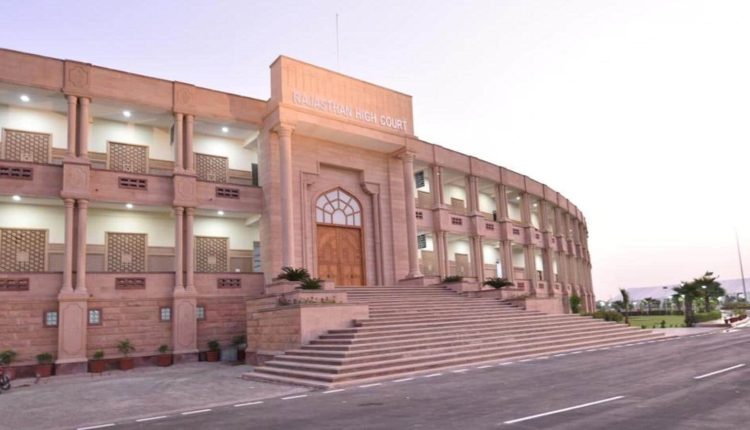The Rajasthan high court has directed both the central and state government to form a joint high-powered committee to address shortcomings in the implementation of welfare schemes designed for pregnant women.
The high court bench was hearing a case where a woman had died after delivering two children in the middle of the road in 2016.
Both children had succumbed to injuries in the hospital.
Due to the neglect of officials at the Community Health Centre (CHC) in Khedli, district Alwar, the newborns lost their lives, reflecting a profound failure of duty by the state and Union of India.
Highlighting the constitutional right to life under Article 21, Justice Anoop Kumar Dhand emphasised the integral nature of the right to health, which includes the right to lead a dignified and meaningful life and right to health is an integral facet of this right.
Also Read: Maha to implement ‘Vatsalya’ to reduce mother & child mortality
Similarly, the state’s minimum obligation is to ensure the preservation of the right to life and health.
To address grievances and accountability, the high court directed the authorities to conduct departmental inquiries against any negligent personnel and to provide compensation of ₹4 lakh to Phoolmati.
The bench highlighted the need for significant improvements in the implementation of schemes like Janani Suraksha Yojna (JSY), Janani Shishu Suraksha Karyakaram (JSSK), the Pradhan Mantri Surakshit Matritva Abhiyan (PMSMA), Pradhan Mantri Matru Vandana Yojana (PMMVY), Indira Gandhi Matritva Poshan Yojana (IGMPY), and Rajasthan Janani-Shishu Suraksha Yojana (RJSSY).
Hence, it directed the authorities to promote awareness through hoardings, posters, banners, and various media channels to ensure that pregnant women are well-informed about the benefits they are entitled to.
Furthermore, the high court insisted that the current financial assistance provided to pregnant women is insufficient, considering the prevailing cost of living, and urged the authorities to review and increase the cash benefits accordingly.
It also stressed the importance of ensuring prompt and unhindered access to these benefits under the schemes, emphasising that no eligible beneficiary should be denied their entitlements.
In a bid to streamline the implementation process, the high court directed the health departments of both the Union of India and the government of Rajasthan to develop standardised formats for maintaining records at medical facilities.
These records should comprehensively detail the services provided to pregnant women under various schemes, including antenatal care, child health, and family planning.
Additionally, the court mandated the establishment of dedicated cells within the health departments at both central and state levels to monitor the implementation of these schemes rigorously.
It also advocated for the introduction and maintenance of mobile applications for immediate assistance to pregnant women and stressed the need for sensitising healthcare staff to provide specialised care before and after delivery.


